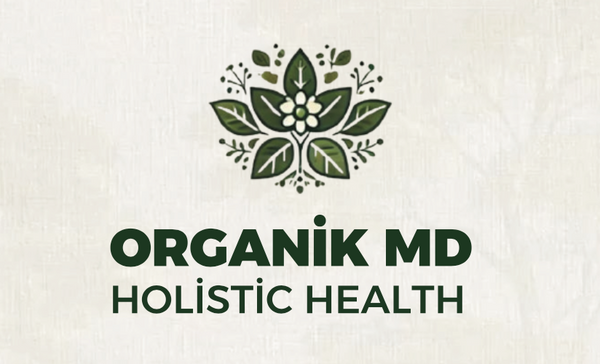Detoxification is a hot topic in the wellness world, but it's often misunderstood. While the idea of detoxing conjures up images of juice cleanses and fasting, functional medicine offers a more comprehensive and scientifically-backed approach to detoxification. Integrative detoxification in functional medicine is about supporting the body's natural detox pathways to promote optimal health, not just for a quick fix but as a sustainable, long-term strategy. In this blog post, we'll dive deep into what integrative detoxification is, why it's essential, and the safe and effective strategies used in functional medicine to achieve it.
Understanding Detoxification in Functional Medicine
Detoxification is the body's natural process of neutralizing and eliminating toxins from the system. These toxins can come from external sources, such as pollutants, chemicals, and processed foods, or internal sources, like metabolic byproducts and excess hormones. The liver, kidneys, digestive system, lungs, and skin all play crucial roles in detoxification. However, when the body is overloaded with toxins, these systems can become overwhelmed, leading to a build-up of harmful substances that can negatively impact health.
Functional medicine views detoxification as a foundational aspect of health. Instead of using extreme or one-size-fits-all methods, functional medicine practitioners focus on individualized, evidence-based strategies that enhance the body's ability to detoxify safely and effectively.

The Pillars of Integrative Detoxification
- Support the Liver: The Body's Primary Detox Organ
- The liver is the powerhouse of detoxification, responsible for filtering blood, metabolizing toxins, and converting them into water-soluble compounds for elimination. In functional medicine, supporting liver health is paramount. This includes ensuring adequate intake of nutrients like glutathione, N-acetylcysteine (NAC), and B vitamins, which are essential for the liver's detox pathways.
- Dietary Support: Incorporating foods that support liver function is crucial. Leafy greens, cruciferous vegetables (like broccoli and Brussels sprouts), garlic, onions, and beets are all excellent choices. These foods provide sulfur-containing compounds that help boost the liver's detox capacity.
- Enhance Gut Health: The Connection Between Detox and Digestion
- The gut plays a critical role in detoxification. A healthy digestive system ensures that toxins are efficiently excreted through the bowel. Functional medicine emphasizes the importance of a balanced gut microbiome, adequate fiber intake, and regular bowel movements.
- Probiotics and Fiber: Probiotics help maintain a healthy balance of gut bacteria, which can influence the body's detoxification processes. Fiber binds to toxins in the digestive tract, aiding their elimination. Foods rich in fiber, such as fruits, vegetables, legumes, and whole grains, are essential for supporting gut health during detox.
- Optimize Kidney Function: The Body's Filtration System
- The kidneys filter blood, removing waste and excess substances through urine. Hydration is key to kidney function, and functional medicine practitioners often recommend increasing water intake during detox to help flush out toxins.
- Herbal Support: Certain herbs like dandelion root, parsley, and nettle have diuretic properties that can support kidney function and enhance detoxification. These herbs can be consumed as teas or in supplement form, but always under the guidance of a healthcare provider.
- Support the Skin: The Largest Detox Organ
- The skin is a significant detox organ, releasing toxins through sweat. Functional medicine encourages practices like regular exercise, which promotes sweating, and infrared saunas, which can enhance detoxification through the skin.
- Topical Detoxification: Skin brushing, Epsom salt baths, and the use of natural, toxin-free skincare products can also support the skin's detox pathways. Avoiding synthetic chemicals and opting for natural alternatives reduces the toxic load on the skin.
- Mind-Body Practices: Reducing Stress to Support Detoxification
- Chronic stress can impair detoxification by diverting energy away from the body's detox systems. Functional medicine incorporates mind-body practices such as meditation, deep breathing, and yoga to reduce stress and support overall detoxification.
- Sleep: Quality sleep is essential for detoxification, as the body undergoes significant detox processes during rest. Establishing a regular sleep routine and creating a restful sleep environment are key components of any detox strategy.
Functional Medicine Detox Strategies
- Personalized Nutrition Plans
- In functional medicine, detoxification is not a one-size-fits-all approach. Practitioners create personalized nutrition plans based on an individual's unique needs, often using functional lab testing to identify specific toxins or imbalances. These plans may include tailored dietary recommendations, targeted supplements, and lifestyle changes to support detoxification.
- Gentle Detox Protocols
- Functional medicine detox protocols are designed to be gentle and sustainable. These protocols often include phases that prepare the body for detox, enhance detoxification, and support recovery. The focus is on long-term health rather than quick fixes, avoiding extreme measures that can be harmful or counterproductive.
- Supplementation
- Specific supplements can support detoxification pathways. Common supplements used in functional medicine include antioxidants like vitamin C and E, detoxifying minerals like zinc and selenium, and liver-supporting herbs like milk thistle. Supplements should always be used under the guidance of a healthcare provider to ensure they are safe and effective for your individual needs.

Integrative detoxification in functional medicine is about more than just eliminating toxins; it's about enhancing the body's natural ability to cleanse itself through a holistic and personalized approach. By supporting the liver, gut, kidneys, skin, and mind, functional medicine provides a comprehensive framework for detoxification that is safe, effective, and sustainable. If you're considering a detox, working with a functional medicine practitioner can help you create a customized plan that aligns with your health goals and promotes long-term well-being.
†These statements have not been evaluated by The Food and Drug Administration. This product is not intended to diagnose, treat, cure, or prevent any disease. Information and statements made are for educational purposes and are not intended to replace the advice of your general practitioner. If you have a severe medical condition or health concern, see your physician.

